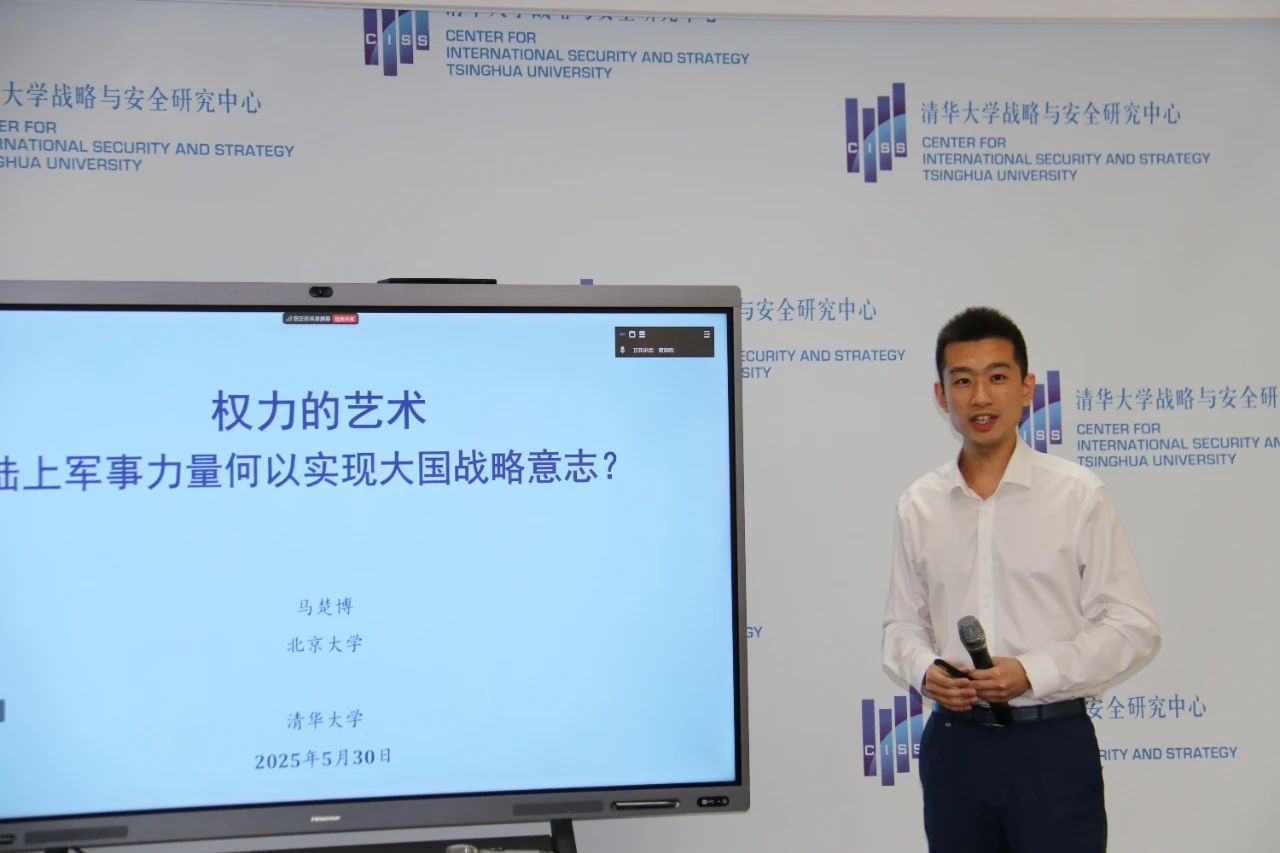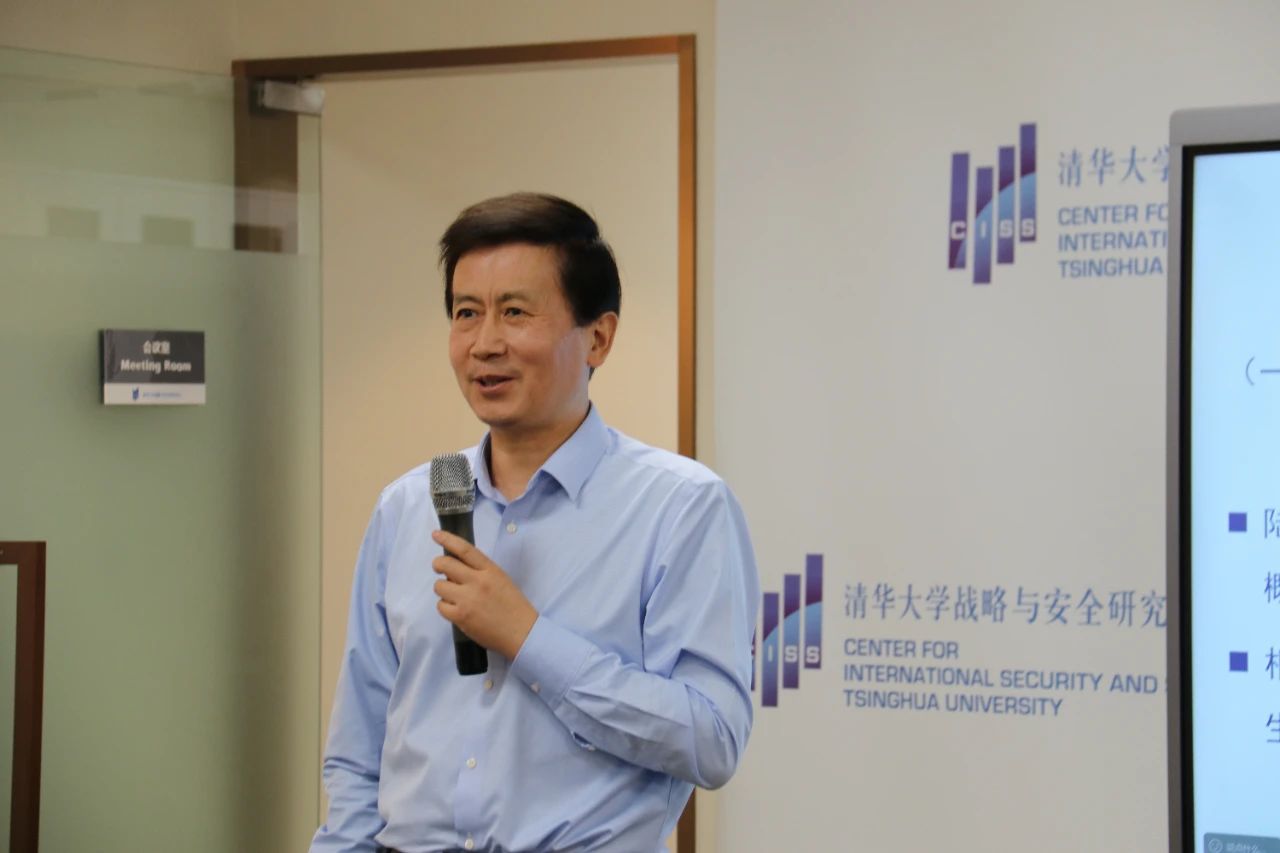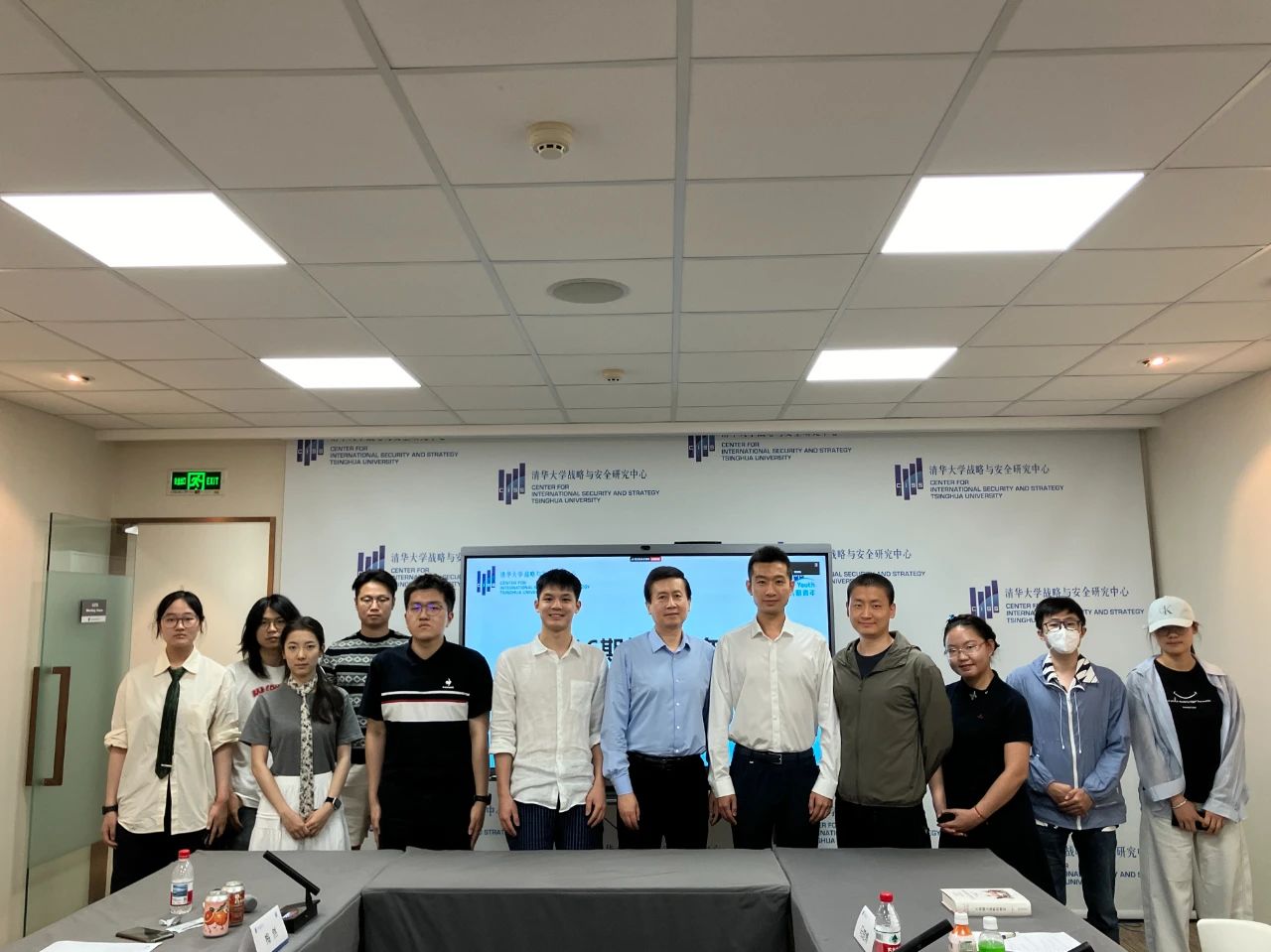On May 30, 2025, the 16th session of CISS Youth Talk, hosted by CISS Youth, was held under the theme "The Art of Power: How Land Power Shapes Great Power Strategic Will." The keynote speaker was Ma Chubo, a PhD candidate at the School of Marxism, Peking University and a member of the 5th cohort of CISS Youth. Mei Ran, Associate Professor in the Department of International Politics and Director of the International Relations Program at the School of International Studies, Peking University, served as the discussant. Nearly 70 students from Tsinghua University, Peking University, Renmin University of China, and China Foreign Affairs University participated online and in person. The event was moderated by Zhang Yuanshinan, Secretary-General of the 5th CISS Youth Secretariat and a graduate student at China Foreign Affairs University.

Ma Chubo began by exploring the "art of power" of land forces through five dimensions: physical control of land, symbolism and presence, will, the art of war, and historical sensibility. He then introduced three core research questions by reflecting on the dilemmas of large-scale modern land warfare: Why has there never been a well-developed theory of land power, unlike sea power or air power? What unique characteristics distinguish land power from maritime and aerial forces? How does land power shape the nature of modern states and their use of violence?Ma argued that the absence of a comprehensive land power theory stems from the long-established tradition of land warfare, the emergence of new domains by sea and air power, and the evolving relationship between technological breakthroughs and military thought. He identified control, mobilization, and deterrence as the three distinctive features of land forces compared to sea and air forces. Citing the works of scholars such as G. K. Cunningham, Colin S. Gray, Harvey Sapolsky, and Jeremy Shapiro, as well as the military classic The Defence of Duffer's Drift, Ma illustrated the strategic role of land power through four case studies: the Zhenbao Island conflict, the Incheon landing, the 1980s Sino-Vietnamese border tensions, and the U.S. military presence in Okinawa, Japan.

Professor Mei Ran provided detailed commentary on Ma’s three key research questions. He praised Ma's explanation for the absence of a land power theory and suggested that the relationship between land-based conscription characteristics and warfare deserves further exploration. Mei concluded by emphasizing the importance of bridging international relations, strategic studies, and military affairs to construct a new theory of land power suitable for the evolving international landscape.
During the Q&A session, participants engaged in in-depth discussions with the speaker on topics such as the deterrent role of land power and case selection strategies.
The event concluded successfully.

